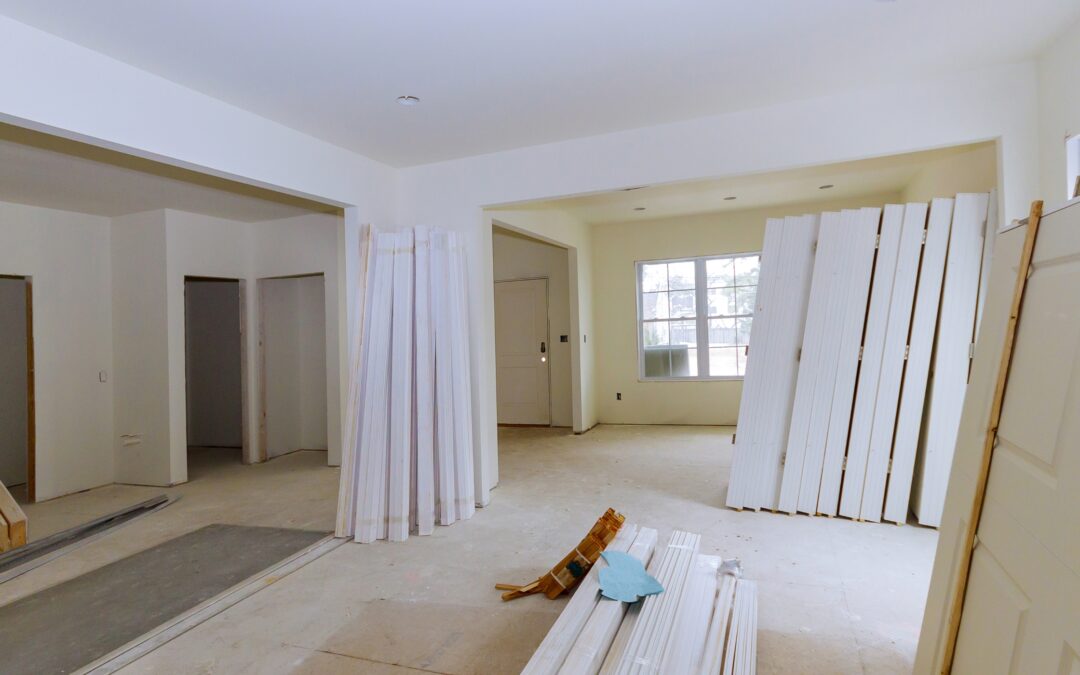Building a home is a significant investment, both financially and emotionally. It’s where you’ll create memories, find comfort, and seek shelter. Therefore, it’s crucial to choose reliable construction materials that stand the test of time. But with so many options available in India’s bustling 2024 market, how do you make the right choices? Don’t worry, Bricknbeams is here to guide you! This article will equip you with the knowledge you need to select durable, high-quality materials for your dream home.
- Foundation: The Bedrock of Your Home
The foundation is literally what your entire house rests upon. Consequently, using robust materials is absolutely non-negotiable.
- Cement: Opt for high-grade cement from reputable brands. In India, grades like OPC 53 and PPC are popular choices for home construction. I remember when my uncle was building his house, he went the extra mile to source high-quality cement, even though it was slightly more expensive. Years later, his foundation remains strong while some of his neighbors who opted for cheaper alternatives are facing issues.
- Steel: Steel reinforcement bars (rebar) provide the necessary tensile strength to your foundation. Look for Fe 500D grade steel, which is a standard for home construction in India. Moreover, ensure the steel is free from rust and has proper certification markings.
- Aggregates: Aggregates like sand and gravel form the bulk of the concrete mix. Use clean, well-graded aggregates for optimal strength and durability. For instance, avoid sand with high silt content as it can weaken the concrete.
- Walls: Structure and Aesthetics
Walls define the structure of your home and play a crucial role in its aesthetics.
- Bricks: Bricks are a classic choice for wall construction in India. However, the quality can vary significantly. Look for well-burnt bricks with a uniform shape and color. You can even do a simple test – strike two bricks together. A clear ringing sound indicates good quality.
- Blocks: Concrete blocks are gaining popularity as a modern alternative to bricks. They offer better thermal insulation and are often larger, leading to faster construction. However, ensure the blocks are cured properly and have consistent dimensions.
- Cement: As with the foundation, high-quality cement is vital for strong and durable walls.
- Roofing: Protection from the Elements
A sturdy roof protects your home from the harsh Indian climate, be it scorching summers, monsoons, or even unexpected hailstorms.
- Concrete: Concrete roofs are incredibly common in India due to their durability and affordability. Reinforced cement concrete (RCC) slabs provide excellent strength and can withstand heavy loads.
- Tiles: Clay tiles are a traditional roofing material that offers good insulation and aesthetic appeal. However, they can be brittle and require proper installation.
- Metal: Metal roofing sheets, like galvanized iron or aluminum, are lightweight and easy to install. They are also resistant to fire and insects. However, they can be noisy during rain and may require additional insulation in hot climates.
- Doors and Windows: Aesthetics and Security
Doors and windows are not just functional elements; they significantly impact your home’s appearance and security.
- Wood: Wood is a timeless choice for doors and windows, offering natural beauty and insulation. However, it requires regular maintenance to prevent termite attacks and weathering. Consider hardwoods like teak or sal for better durability.
- uPVC: Unplasticized Polyvinyl Chloride (uPVC) is a popular modern alternative. It is termite-proof, weather-resistant, and requires minimal maintenance. uPVC doors and windows are also energy-efficient, helping you save on electricity bills.
- Aluminium: Aluminium is another durable and low-maintenance option. It is lightweight, strong, and resistant to corrosion. However, it can be a good conductor of heat, so consider thermal breaks for better insulation.
- Plumbing and Electrical: The Hidden Essentials
While often hidden from view, plumbing and electrical systems are essential for a functional and safe home.
- Pipes: For plumbing, choose durable and corrosion-resistant pipes. CPVC (Chlorinated Polyvinyl Chloride) pipes are a popular choice for water supply lines, while PVC (Polyvinyl Chloride) pipes are commonly used for drainage.
- Wires: Use high-quality electrical wires with proper insulation to prevent short circuits and fire hazards. Look for ISI-marked wires from reputable brands.
- Switches and Sockets: Choose switches and sockets made from durable materials like polycarbonate. Consider features like modular switches and child-safety sockets for added convenience and safety.
- Flooring: Style and Comfort Underfoot
The flooring material you choose greatly influences the look and feel of your home.
- Tiles: Ceramic and vitrified tiles are popular choices for their durability, variety of designs, and ease of maintenance. However, they can be cold in winters.
- Marble: Marble offers a luxurious and timeless appeal. It is durable and relatively easy to maintain. However, it can be expensive and susceptible to staining.
- Wood: Wooden flooring brings warmth and elegance to your home. Engineered wood flooring is a popular choice as it is more stable and resistant to moisture compared to solid wood.
- Paint: The Finishing Touch
The final coat of paint adds personality and protects your walls from moisture and damage.
- Exterior Paint: Choose exterior paints that can withstand harsh weather conditions, including rain, sunlight, and temperature fluctuations. Look for paints with UV protection and anti-fungal properties.
- Interior Paint: Interior paints should be aesthetically pleasing and easy to clean. Consider low-VOC (Volatile Organic Compounds) paints for better indoor air quality.
Bonus Tip: Sustainable Choices for a Greener Home
In 2024, sustainable construction is more important than ever. Consider incorporating eco-friendly materials into your home:
- Fly Ash Bricks: These bricks are made from fly ash, a byproduct of coal combustion, making them a sustainable alternative to traditional clay bricks.
- Bamboo: Bamboo is a fast-growing, renewable resource that can be used for flooring, wall panels, and even structural elements.
- Recycled Materials: Explore options like recycled plastic lumber or recycled glass countertops to reduce your environmental footprint.
Key Takeaways
Choosing reliable construction materials is crucial for building a durable and safe home. Prioritize quality over cost, especially for essential components like the foundation, walls, and roof. Don’t hesitate to consult with architects, engineers, and experienced contractors for expert advice. After all, building a home is a journey, and making informed choices will ensure a smooth and successful experience.
Remember, your home is a reflection of your personality and values. Choose materials that not only meet your functional needs but also align with your aesthetic preferences and commitment to sustainability.
Happy building!

